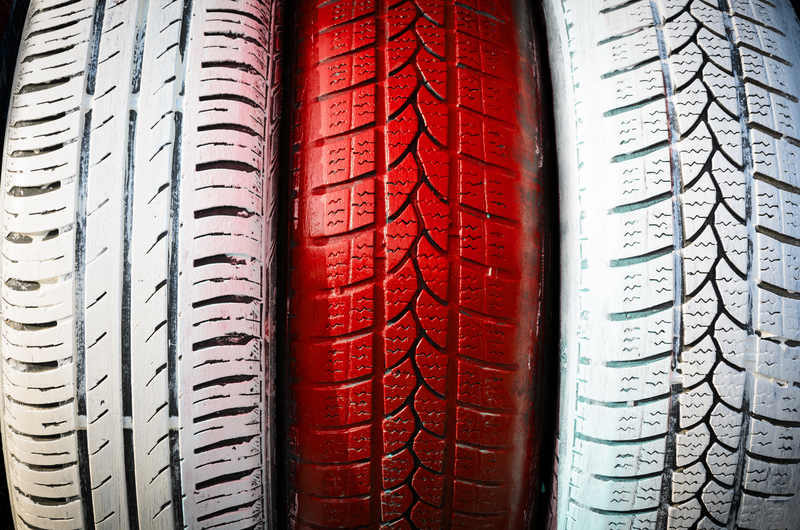Protecting the Environment by Managing PPE Waste Responsibly
The COVID-19 pandemic has made Personal Protective Equipment (PPE) a critical part of daily life for healthcare workers, essential employees, and the general public. The unprecedented surge in disposable face masks, gloves, gowns, and other protective materials, however, has resulted in major environmental challenges. Understanding how to manage PPE waste responsibly is key to safeguarding our environment for future generations.
Understanding the Environmental Impact of PPE Waste
PPE waste has become a significant environmental concern due to its volume, composition, and potential for contamination. The majority of disposable PPE items are made from single-use plastics like polypropylene, which are not readily biodegradable. When discarded irresponsibly, these items often end up in landfills, oceans, and urban areas, where they can persist for hundreds of years.
Key Environmental Issues Caused by Improper PPE Disposal
- Plastic Pollution: Discarded PPE contributes to the rising tide of plastic waste in our oceans, threatening marine ecosystems and wildlife.
- Ecosystem Disruption: Animals can mistake PPE for food or become entangled, leading to injury or death.
- Microplastic Generation: As PPE breaks down, it fragments into microplastics, contaminating soil and water and entering the food chain.
- Greenhouse Gas Emissions: PPE in landfills can release methane and other harmful gases as it degrades, contributing to climate change.
- Public Health Risks: Used PPE can harbor pathogens, posing health risks to sanitation workers and the public if not treated properly.

The Urgent Need for Responsible PPE Waste Management
Managing PPE waste responsibly is essential to protect both human health and the environment. Every sector of society--from governments and businesses to individuals--plays a crucial role in establishing and maintaining safe disposal systems. Below are strategies and best practices for environmentally sound PPE waste management.
The Lifecycle of PPE: Risks and Opportunities
- Manufacturing: The raw materials used for PPE production often have a significant carbon footprint. Manufacturers can adopt sustainable sourcing and cleaner production technologies.
- Usage: Prolonged or repeated use, when safe and appropriate, can reduce waste. Education on proper PPE selection and care is critical.
- Disposal: Safe and environmentally-friendly disposal minimizes negative impacts. Innovations like recycling and energy recovery can further enhance waste management.
Best Practices for Environmentally Friendly PPE Waste Disposal
For Individuals
- Dispose Responsibly: Never litter used masks or gloves. Place them in a designated waste bin--preferably one lined with a plastic bag and with a lid.
- Follow Local Guidelines: Abide by municipal or community rules for PPE waste, especially if special handling is required.
- Opt for Reusables: Use washable, reusable masks where medical-grade PPE is not required.
- Reduce Unnecessary Use: Only use PPE when necessary, and avoid disposing of partially used items prematurely.
For Businesses and Institutions
- Set Up Dedicated PPE Bins: Clearly label bins for PPE disposal and place them in accessible areas throughout facilities.
- Train Staff: Implement regular training sessions on correct PPE waste handling and disposal procedures.
- Partner with Licensed Waste Handlers: Work with certified waste management companies specializing in infectious or hazardous waste.
- Encourage Sustainable Alternatives: Where possible, choose biodegradable or recyclable PPE products.
For Local Governments and Policymakers
- Increase Public Awareness: Conduct information campaigns on the environmental risks of improper PPE waste disposal.
- Provide Infrastructure: Supply communities with sufficient PPE disposal units and ensure timely waste collection.
- Enforce Regulations: Enact and uphold laws that mandate safe and responsible management of PPE waste.
- Support Research: Invest in innovation for PPE recycling, biodegradable alternatives, and eco-friendly waste treatment technologies.
Eco-Friendly Alternatives and Innovations in PPE
Protecting the environment by managing PPE waste responsibly also means embracing new technologies and materials. Manufacturers and researchers are innovating rapidly to reduce the environmental impact of PPE. Here are some promising developments:
Biodegradable and Compostable PPE
- Plant-Based Masks: Face coverings made from materials such as bamboo fiber, hemp, or wood pulp decompose much faster than plastics.
- Starch-Based Gloves: Alternatives to petroleum-based latex and nitrile gloves are under development, reducing both plastic use and carbon footprints.
- Compostable Gowns: Some manufacturers are creating single-use gowns from renewable materials that break down within months.
Recyclable PPE Products
- Polypropylene Mask Recycling: Specialized recycling programs can convert used masks into plastic pellets for use in construction or manufacturing.
- Closed-Loop Systems: Some healthcare facilities collect used PPE for centralized recycling, turning waste into new PPE or other products.
Decontamination and Reuse Technologies
- UV-C Disinfection: Hospitals and labs are employing UV light to disinfect and safely reuse certain PPE items, reducing waste volume.
- Ozone and Heat Treatments: Carefully controlled processes can sanitize masks and gowns for a limited number of reuses, cutting down on raw material demand.
The Global Challenge: PPE Waste and Ocean Pollution
The impact of PPE waste is truly global. Estimates suggest that every minute, a staggering number of disposable masks enter the world's oceans, contributing to the build-up of 'COVID-19 litter.' Marine creatures can ingest or get entangled in this waste, often with fatal consequences.
Action is urgent--here's how individuals and organizations can help:
- Participate in Cleanup Campaigns: Volunteer for or support initiatives that remove PPE and other litter from beaches, parks, and waterways.
- Advocate for Change: Urge policymakers to enact bans on improper disposal and support strict enforcement of anti-littering laws.
- Educate the Public: Spread the word about the environmental hazards of discarded PPE and how to dispose of it responsibly.
Protecting Our Environment: The Role of Businesses and Healthcare Facilities
Institutions that use large quantities of PPE, such as hospitals, clinics, and factories, have a special responsibility to handle PPE waste sustainably. This can be achieved through:
- PPE Collection Points: Providing distinct and well-marked waste bins for used masks and gloves in public and staff areas.
- Waste Segregation: Sorting PPE from other waste for specialist handling and treatment.
- Sustainable Procurement: Prioritizing eco-friendly PPE in purchasing policies.
- Reporting and Transparency: Publicly tracking and reporting on PPE use and waste management to encourage accountability.
Case Study: Successful Institutional PPE Waste Solutions
One major hospital network in Europe implemented a comprehensive PPE recycling program, collecting tens of thousands of used masks weekly. These were sent to a specialized plant, where advanced processes converted them into road-building materials--effectively upcycling waste into valuable resources. This model has inspired similar programs around the world.
Long-Term Strategies for Sustainable PPE Waste Management
Addressing the PPE waste problem requires not just immediate action, but also long-term planning and behavior change. Key strategies include:
- Investing in Research: Supporting innovation for more sustainable PPE materials, recycling, and disposal technologies.
- Behavioral Change Campaigns: Educating the public about the necessity of responsible disposal and the value of reusable alternatives.
- Circular Economy Initiatives: Encouraging businesses to design PPE products with end-of-life recycling in mind, and supporting markets for recycled materials.
- International Collaboration: Sharing knowledge, resources, and best practices across borders to address PPE waste as a shared global challenge.

Frequently Asked Questions (FAQ) on PPE Waste and Environment
- Q: What happens to PPE if it is not disposed of correctly?
PPE left in the environment can become litter, pollute waterways, harm wildlife, and contribute to microplastic contamination. It may also pose health hazards to humans. - Q: Are there biodegradable options for masks and gloves?
Yes, some manufacturers are offering plant-based, compostable PPE. However, their use is not yet widespread, and correct disposal is still necessary for full environmental benefits. - Q: Can used PPE be recycled?
Some PPE can be recycled through specialized programs, but most municipal systems do not accept contaminated PPE in regular recycling bins. Always follow local guidelines and look for dedicated PPE recycling schemes. - Q: How can individuals minimize their PPE waste?
Choose reusable masks where safe, only use PPE when necessary, and dispose of used items in closed bins. Support businesses and products that prioritize sustainability.
Conclusion: Our Shared Responsibility for a Greener Future
Protecting the environment by managing PPE waste responsibly is a challenge we all share, whether as individuals, businesses, or governments. By adopting best practices, supporting innovation, and fostering awareness, we can minimize our environmental impact while maintaining essential health protections.
It is only through coordinated action, mindful choices, and a commitment to sustainability that we can ensure a cleaner, healthier, and more resilient world--now and for generations to come.
